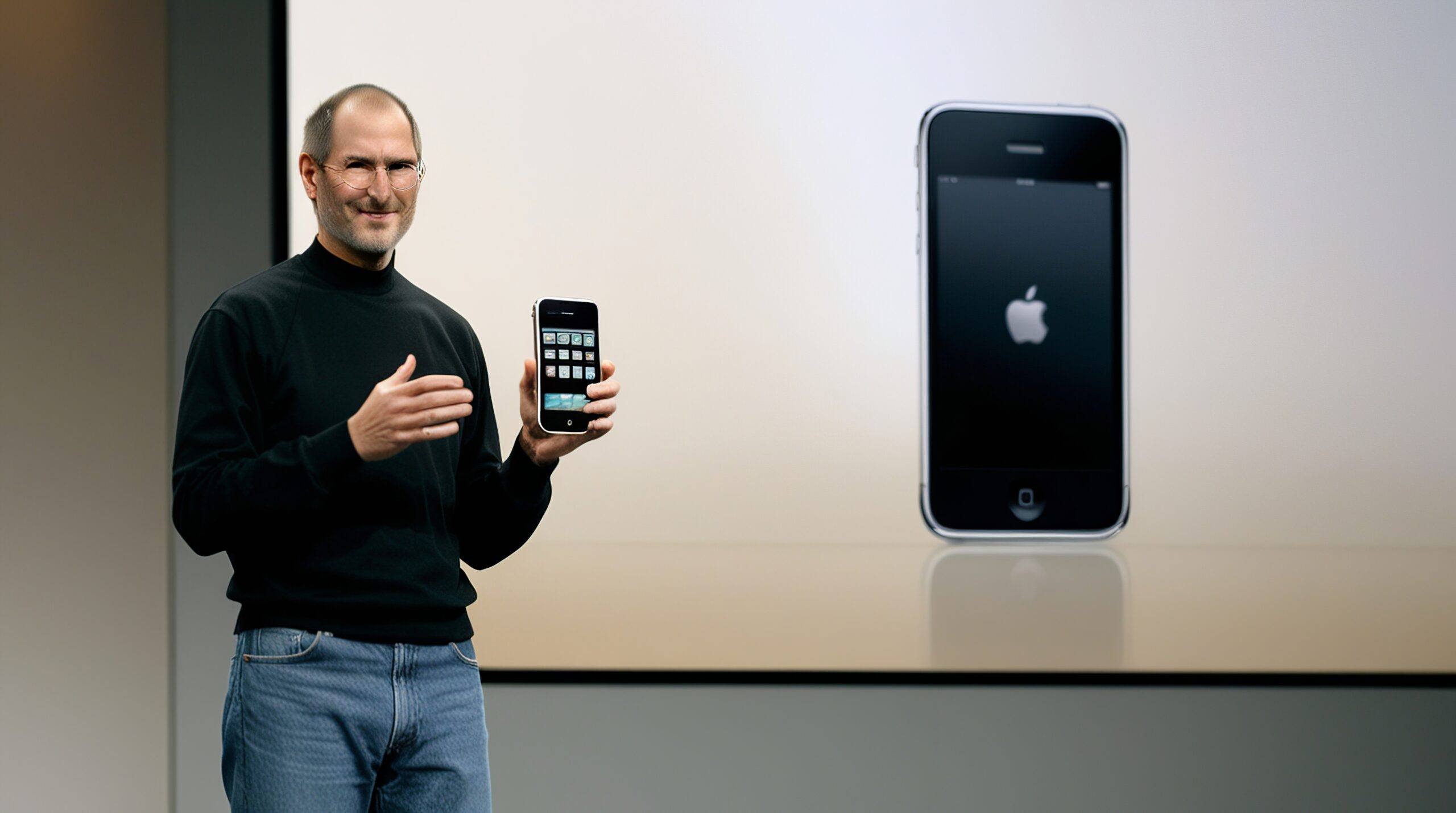Imagine a world where Apple never released the iPhone. This pivotal device not only revolutionized the tech industry but also profoundly impacted our daily lives. From the way we communicate to the way we access information, the iPhone has left an indelible mark on society. But what if this groundbreaking product never saw the light of day? This thought experiment delves into the potential impacts of a world without the iPhone, exploring how the smartphone market, technological innovations, other Apple products, competitors, and the economy might have evolved differently. Join us on this journey to envision an alternate history where one of the most influential devices never existed.
The Smartphone Market
Without the iPhone, the smartphone landscape would have been vastly different. Before the iPhone, smartphones were primarily used by business professionals and featured physical keyboards. BlackBerry and Nokia were the dominant players in this market. Without the first iPhone to revolutionize the touch screen interface and app ecosystem, these companies might have continued their dominance. They would have likely innovated within their existing frameworks, possibly delaying the adoption of touch-based interfaces and app ecosystems that the iPhone popularized.
Google would likely have taken the lead with Android sooner. However, the Android platform might have looked different without the influence of the iPhone’s design and functionality. The emphasis on touch screen interfaces, app stores, and sleek design pioneered by Apple might have been delayed or taken a different form. Companies might have continued to focus on enhancing physical keyboards and optimizing software for smaller screens, which could have significantly altered the development trajectory of mobile technology as we know it today.
Technological Innovations
The iPhone spurred a wave of technological innovations. Without it, many advancements in mobile technology might have been delayed. Features such as multi-touch interfaces, high-quality cameras, and the integration of powerful processors in mobile devices might not have developed as quickly. The push for better and faster hardware, driven by the intense competition sparked by the iPhone, might have taken a backseat, resulting in slower progress in smartphone capabilities and functionalities.
The app economy, a significant driver of modern tech innovation, owes much to the App Store introduced by Apple. Without the iPhone, the concept of app stores might have been slower to catch on, affecting the development of mobile apps and the rise of companies built around mobile platforms. Innovators and developers might have faced more challenges in distributing their software, potentially stifling the growth of the mobile app industry and limiting the variety and quality of apps available to consumers.
Impact on Other Apple Products
Apple’s success with the iPhone also fueled the development of other products like the iPad, Apple Watch, and AirPods. These products might not have existed or would have taken a different shape without the iPhone’s influence. The interconnected ecosystem of Apple devices that many users enjoy today might have been less cohesive and seamless. Apple might have focused on its traditional computer lines, such as the Mac, potentially missing out on the lucrative market for portable and wearable technology.
Without the iPhone driving revenue and brand loyalty, Apple might have focused on other product lines or innovations. This shift could have led to a different technological landscape, with other companies potentially filling the void left by Apple’s absence in the smartphone market. For instance, Microsoft or other competitors might have seized the opportunity to lead in mobile technology, creating a different set of dominant players in the tech industry.
Influence on Competitors
The iPhone set a new standard for smartphones, pushing competitors like Samsung, HTC, and Google to innovate rapidly. Without the iPhone, these companies might have followed different design and technology paths. The competition between iOS and Android has driven many of the advancements we see in mobile technology today. Without the iPhone, the competitive landscape would have looked very different, potentially affecting the quality and pace of innovation in the industry. Companies might have been slower to adopt touch screen technology or to invest in creating robust app ecosystems.
Other tech giants might have taken advantage of the vacuum created by the absence of the iPhone. Companies like Microsoft, which struggled with its mobile OS, might have had a better chance to establish a foothold in the market, leading to a more diverse smartphone ecosystem. This diversity could have led to a broader range of mobile operating systems and possibly more innovation as companies strived to differentiate their products in a market less dominated by the duopoly of iOS and Android.
Economic Impact
Apple’s rise to become one of the world’s most valuable companies is closely tied to the success of the iPhone. Without it, Apple’s financial trajectory would have been different. This could have affected the company’s ability to invest in research and development, leading to fewer breakthroughs in technology. Apple’s stock market performance and its status as a tech industry leader might have been significantly diminished, impacting investor confidence and the broader market’s perception of the company.
Moreover, the wider tech industry would have felt the economic impact. The iPhone’s success created a massive ecosystem of app developers, accessory manufacturers, and service providers. This thriving ecosystem might not have emerged in the same way, affecting the job market and the economy. The ripple effects could have impacted everything from employment rates in tech sectors to the pace of innovation and the development of related technologies like mobile internet infrastructure and digital payment systems.
Conclusion
The iPhone’s release was a pivotal moment in technological history, and its absence would have left a significant void. While other innovations and companies would have likely filled some of the gaps, the specific advancements and cultural shifts brought about by the iPhone might not have occurred in the same way or at the same pace. From delaying technological innovation to altering economic and competitive landscapes, the world without the iPhone would be markedly different. This alternate history highlights the profound impact of a single product on global technology and society.
For a deeper exploration of this alternate history, check out our detailed video on What If Apple Never Released the iPhone?. Discover how the absence of the iPhone’s historical impact might have transformed our world and the tech industry as we know it.



